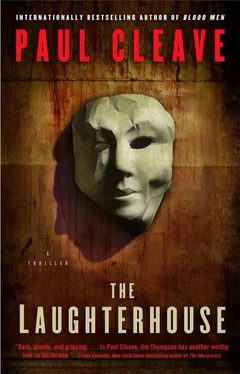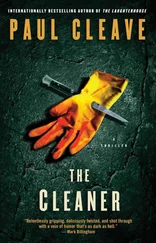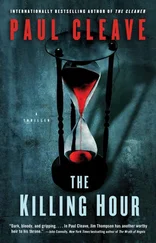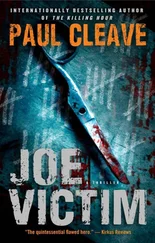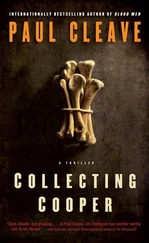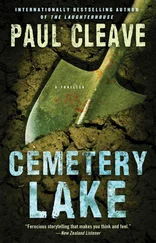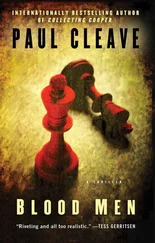Paul Cleave - The Laughterhouse
Здесь есть возможность читать онлайн «Paul Cleave - The Laughterhouse» весь текст электронной книги совершенно бесплатно (целиком полную версию без сокращений). В некоторых случаях можно слушать аудио, скачать через торрент в формате fb2 и присутствует краткое содержание. Год выпуска: 2012, ISBN: 2012, Издательство: Atria Books, Жанр: Триллер, на английском языке. Описание произведения, (предисловие) а так же отзывы посетителей доступны на портале библиотеки ЛибКат.
- Название:The Laughterhouse
- Автор:
- Издательство:Atria Books
- Жанр:
- Год:2012
- ISBN:9781451677959
- Рейтинг книги:5 / 5. Голосов: 1
-
Избранное:Добавить в избранное
- Отзывы:
-
Ваша оценка:
- 100
- 1
- 2
- 3
- 4
- 5
The Laughterhouse: краткое содержание, описание и аннотация
Предлагаем к чтению аннотацию, описание, краткое содержание или предисловие (зависит от того, что написал сам автор книги «The Laughterhouse»). Если вы не нашли необходимую информацию о книге — напишите в комментариях, мы постараемся отыскать её.
The Laughterhouse — читать онлайн бесплатно полную книгу (весь текст) целиком
Ниже представлен текст книги, разбитый по страницам. Система сохранения места последней прочитанной страницы, позволяет с удобством читать онлайн бесплатно книгу «The Laughterhouse», без необходимости каждый раз заново искать на чём Вы остановились. Поставьте закладку, и сможете в любой момент перейти на страницу, на которой закончили чтение.
Интервал:
Закладка:
“Ariel works the streets,” Harvey says, “has done for a long time. We tried to stop her and we tried to get her help, of course. I mean, what parents wouldn’t? I say that because it’s important to us you understand that, that you don’t think we abandoned our daughter. The more we tried the worse it got. She used to run away a lot. Not right after the thing with Jessica, but about a year later. Within months she was a different girl. Losing Jessica that way, it changed her. It wasn’t until she was around thirteen that she really started blaming herself. I think that was when she finally understood what had happened. She hated James Whitby and she hated herself.” He looks around for his wife, then smiles at me when he seems to remember she isn’t there. “Coffee won’t be too long,” he says.
I nod and don’t say anything, wanting him to continue. One of the forensics leads on TV has just shot somebody. That’s the thing about TV-the bad guys often end up dying. I wonder if that’s how it will end for Caleb.
“We got her counseling and it didn’t help. She was prescribed antidepressants and the day she got them she took them all. We got her to the hospital just in time. The doctors said another few minutes and she wouldn’t have made it. They said that as it was, it was a miracle she did.”
I think about the word miracle again, and part of me is afraid that the miracles in this world are limited and that Ariel Chancellor has used one up that could have gone to my wife. It’s a stupid selfish thought, but there it is, unmasked and real.
“After that she would sneak out at night and come home drunk. She started fooling around with the boys in her school. She was expelled from high school at fifteen when she was caught having sex with two students at the same time for a handful of change in one of the science labs. We got her into another school and the same thing happened two weeks later. She ran away more and more, and each time we found her she was higher than the last. When she turned seventeen we hardly ever saw her again.”
He gives me the speech and is candid about it in the way a man can be when he’s given the speech so many times there is no more shame in it, not that there is shame at what his daughter did-she was a victim of a crime-but perhaps shame in the fact they couldn’t help her. He doesn’t sound disappointed, doesn’t sound upset-just accepting that this is the way life turned out.
“He used to write to her,” he says. “Caleb, from jail.”
“Write about what?”
“About how much he loved her and how much he hated her. About prison life, about his daughter, about the son he never had, about his wife.”
“You still have the letters?”
He nods. “We wanted to throw them out, but we always thought one day we might need them.”
His wife comes back into the room carrying a tray with three cups on them, catching up on the conversation. “I’ll go and get them, shall I?”
“I think they’re in the closet,” he says, “up on the top shelf behind the jigsaw puzzles.”
“They’re in the spare bedroom,” she says, “under the bed in a box.” She puts the tray down on the coffee table and walks back out.
Harvey gives me the eye roll and half shrug. “This is why it’s so important to be married at this age,” he says.
I nod. I will also be married at his age, and before today I thought Bridget would never be able to tell me where I left my favorite T-shirt-but maybe that isn’t going to be the case.
“I see you know what I mean,” he says, giving a small laugh.
“Sorry?”
“You were smiling,” he says.
“Tell me about the letters.”
“In the beginning they were okay,” he says. “In them Caleb says how sorry he is Ariel went through what she went through, and how he was thankful both girls hadn’t died. Then they became angry. So angry I was amazed he was allowed to send them. I made a complaint and the prison said there was nothing they could do because he was getting the letters out without them being screened. They said it happens all the time, inmates handing the mail to other inmates who are being visited by family, and they said it was a violation of his rights to take away his ability to write. Can you believe that? A guy is writing to my daughter about how he wishes she had been raped and murdered instead of his own girl and the prison authorities say he’s the one with the rights?”
I wince at hearing those words. “That’s what he was saying?”
“And worse, let me tell you,” he says, a slight nod while he talks, and the slight nod is just enough to make the words spill out faster. “The letters would change in tone. One would arrive and say he didn’t blame Ariel in the least, another would arrive and call her a slut, that it was her fault his daughter had died, that if she had been any kind of friend she wouldn’t have run away and left her there. And the worst thing-well, the worst thing is we kept reading them. Honestly, I couldn’t tell you why.”
“I’m guessing Ariel never saw the letters?”
“No,” he says.
Mrs. Chancellor brings in the letters and hands them over. They form a fat stack, held together by a rubber band, the corners and edges discolored and twisted. The coffee is still too hot to pick up. I pull out the top letter. Cole’s handwriting is barely legible.
“It’s because of his broken fingers,” Chancellor says, nodding toward the letters.
Caleb had winced when I shook his hand at the cemetery after I jump-started his car. Those same hands found the strength the following day to wrap themselves around my throat.
“Before all of this happened, how well did you know him?”
He gives a slight shrug. Harvey Chancellor is all about slight gestures. The small nod, the small shrug, the small laugh. I hope for his wife’s sake he makes up for it in other ways.
“We knew him and his wife. We met them because the kids were best friends. You know how it is, when children grow up together you get to know their parents. Caleb was a good guy. I liked him. I didn’t know him that well, but we’d see him at birthday parties and school events, and of course every weekend or so one of us dropped one of the kids off at the other’s house for playdates. He loved his family, no doubt there. They had plans-they were having another baby, I remember that. His wife, God, she was lovely.”
“Really lovely,” Mrs. Chancellor says, and she’s sitting on the armrest next to Harvey on the couch. “And stunning too. A real beauty. She never had a mean thing to say about any of the other parents or students, and she certainly had plenty of opportunity to. Some kids are real shits, excuse my French,” she says, “but it’s true. Have you ever met a couple that is so happy, so deeply in love, that you get the feeling they’ve never fought a day in their lives? Marriages always take work,” she says, “as I’m sure you know,” she adds, looking down at my hand and seeing my wedding ring, with no idea exactly how much work my marriage is taking, “but their marriage didn’t seem to take any. It’s a rare thing, and you tell people that and they tell you you’re wrong, that no marriage can be like that, but I swear theirs was. The Caleb we knew over those years, he died back then just as his wife and daughter did. The man who wrote those letters, he isn’t anybody we ever met. He’s a stranger and a monster and we pray for him, Detective, we both pray for him.”
“These people he’s killed,” Harvey says, “why them? Who are they?”
I run off the names for him.
“I don’t recognize any of them,” he says.
“Should we?” his wife asks.
“One was Whitby’s lawyer,” I say. “One was the foreman of the jury. Another was a character witness for the defense. The other one we believe is somebody your daughter was acquainted with on a professional level. And Dr. Stanton is the man who said James Whitby could be cured.”
Читать дальшеИнтервал:
Закладка:
Похожие книги на «The Laughterhouse»
Представляем Вашему вниманию похожие книги на «The Laughterhouse» списком для выбора. Мы отобрали схожую по названию и смыслу литературу в надежде предоставить читателям больше вариантов отыскать новые, интересные, ещё непрочитанные произведения.
Обсуждение, отзывы о книге «The Laughterhouse» и просто собственные мнения читателей. Оставьте ваши комментарии, напишите, что Вы думаете о произведении, его смысле или главных героях. Укажите что конкретно понравилось, а что нет, и почему Вы так считаете.
